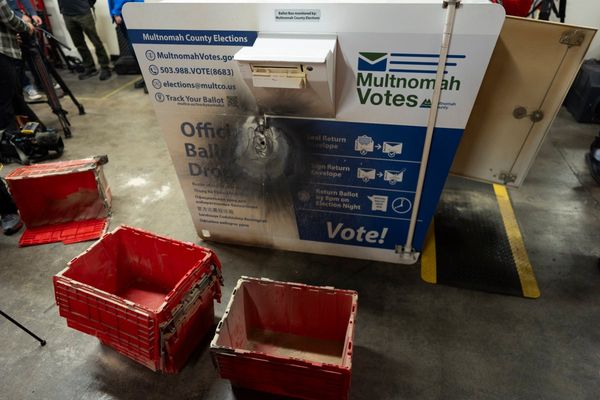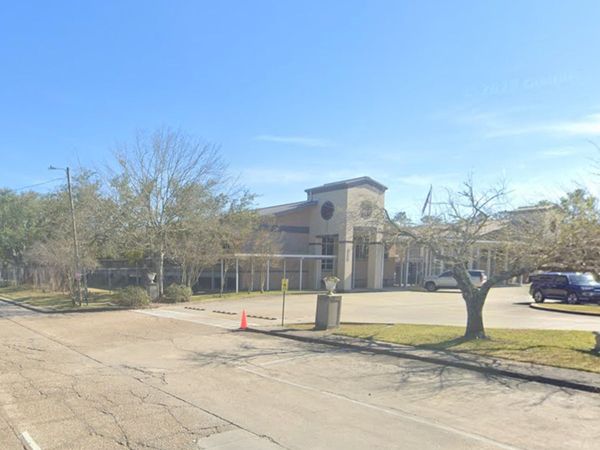Taking on the role of Richard Williams, the zealous father and coach of tennis phenoms Serena and Venus Williams, Will Smith flexes his drama chops, charming audiences as a maniacally driven man carrying some heavy emotional baggage.
Landing in cinemas in time for the Australian Open, King Richard works as a crowd-pleasing biopic that illuminates the long and wildly unconventional path to glory for the superstar sisters, who hold 30 grand slam singles titles between them.
The pair were closely involved in the film, with executive producer credits, and Zach Baylin's script hews close to the sport film genre's comforting arc of rags to riches, charting their journey from pushing a supermarket trolley full of balls across a raggedy public grass court in Compton, Los Angeles County, to the slick stadiums of the international pro circuit.
But the film's real lodestone stands off-court – often with his back turned, too nervous to watch – as Richard's equally outsize personality and aspirations propel the family drama.
Many may question the choice to portray the Williams sisters' success through dad's actions, but the film poses intriguing questions about nature vs nurture and what exactly makes a sports star – while squeezing bucketloads of drama from both his charisma and his flaws.
Smith's Richard, first seen peering through the front window of his Kombi van with an intense focus that he will sustain through every scene, is a stubborn eccentric with an inspired if paternalistic vision for his daughters – or as he repeatedly states with his soft Louisiana accent, eyes shining like a devout believer, "the plan".
"The plan" is the 78-page road map that he infamously charted for the sisters before he first got them onto a tennis court at the age of four (the strangest part of the scheme is perhaps that it has mostly come true, including his prophecy that Serena would eventually overtake Venus and become one of the greatest players of all time).
The film shows Richard cultivating media interest by sending out unconventional homemade brochures and promo videos, and generally acting as a hype man — a role he continued for decades, becoming a mini-celebrity himself, which gave the filmmakers reels of archive footage to refer back to.
For Richard, coaching is a 24/7 job. On the court, he pins up signs reading "If you fail to plan, you plan to fail" and "You are a winner!" while at home he turns a relaxed family viewing of Cinderella into an opportunity to glean vital life lessons.
He even studies tennis magazines on his night shifts as a guard.
This is his way to make up for the family's lack of resources, to be able to access the stuffy, moneyed, mostly white world of elite tennis and give his kids the shot at life that he never had (designs on social mobility shared by the mother of the teen tennis prodigy in Ida Lupino's much darker tale of parental pressure from 1951, Hard, Fast and Beautiful).
The particulars of Richard's difficult Shreveport childhood – presented here as the backdrop informing his approach – are detailed in his 2014 memoir, Black and White: The Way I See It, which describes an absent father and the daily reality of violence and segregation in a town filled with Klansmen.
As such, the film positions the Williams's story as inextricable from the story of America.
New York-born director Reinaldo Marcus Green (Monsters and Men) shows restraint in these scenes, never overplaying the prejudice the family faced, though the drama gains extra gravitas from audiences' real-world knowledge of the overt racism both sisters have experienced for much of their careers.
Saniyya Sidney and Demi Singleton are totally convincing in the roles of young Venus and Serena respectively, emitting an at times bewildering level of self-belief as well as on-court prowess.
Smith, though, is the one likely to be courting awards season attention, serving up bull-headed belligerence, wounded silence and fart jokes with equal aplomb.
The charisma and youthful invincibility that made the Fresh Prince bounce about the screen in his iconic comic roles back in the 90s is swapped out here for a weary knowingness, and a physical performance, adopting a cowed posture and a slight limp, that suggests the hard life his character's lived.
Always ready with a joke, Richard embraces militant self-belief – because the only other option available to him is despair.
Shot by cinematographer Robert Elswit, known for There Will Be Blood and his gritty collaborations with director Paul Thomas Anderson, the gentler milieu of 90s competitive tennis is conjured through sun-kissed courts, candy-stripe shorts, pastel tees and glimpses of pre-millennial champs like Pete Sampras and Jennifer Capriati.
It's a nostalgic vision that takes some of the edge off of life in Compton.
At home, the Williams's five daughters sleep sardined in one bedroom, while disapproving neighbours call child services, bored gang members roam looking for trouble, and the TV blares footage of the Rodney King beating.
And yet instead of depicting the district as a place to flee and never look back at, the film sharply locates even greater horrors in the private sports clubs overrun by smarmy, cigar-smoking agents and helicopter parents.
Caricatures of prissy teenage girls having on-court tantrums and the (even funnier) bad behaviour of their parents provoke Richard to declare to one scandalised journalist that "tennis parents should be shot".
The film is not without its faults, but Green, who pitched it to Warner Bros. as "Boyz n the Hood meets Moneyball", taps into poignant, bigger narratives about intergenerational trauma and exceptionalism, and it often feels like tennis itself takes a backseat while the film devotes ample screen time to navigating weighty emotional material.
Some of the most interesting moments come from the women talking back, with mother Brandy (a formidable Aunjanue Ellis) standing her ground against Richard, and a 15-year-old Venus, on the brink of stardom, demanding her independence.
Still, it comes as a relief when we're finally treated to a tournament showdown, full of cannonball forehands and aces driven deep into the corners of the service box.
These scenes are satisfying, even if they don't quite showcase the sport's point-to-point mind games (captured by a documentary like In the Realm of Perfection) or the kinetic thrills of a match at Rod Laver Arena.
For a movie built around a game that was hailed by titans such as critic Serge Daney and director Jean-Luc Godard as closest to pure cinema, this feels like a missed opportunity.
Thankfully, Smith's magnetism and the bizarre twists and turns of the Williams's story keep us hooked to the end.
King Richard is in cinemas now.







